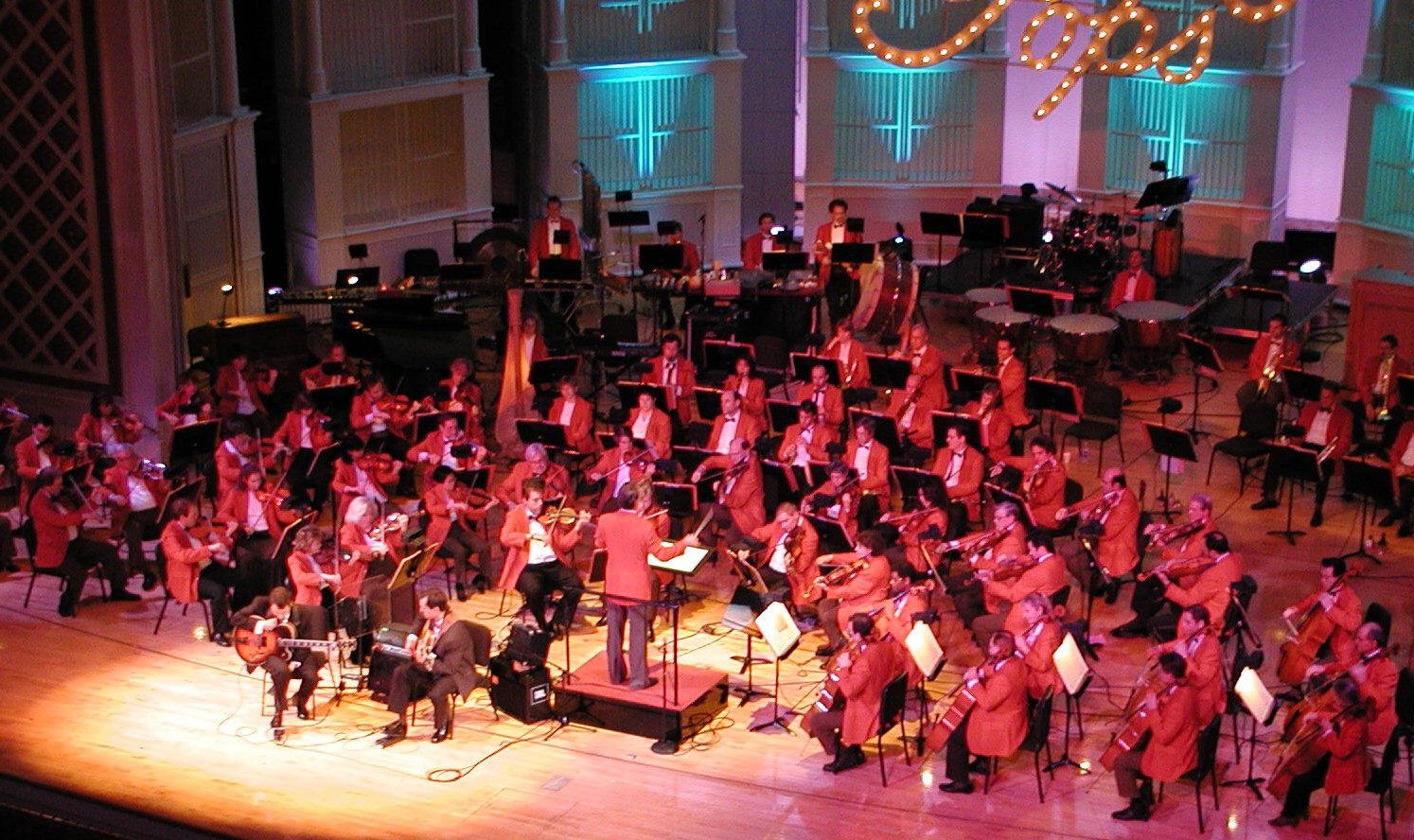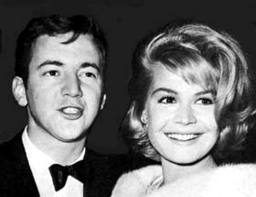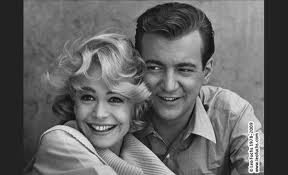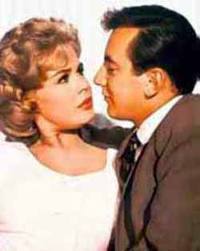|
Word Gems
exploring self-realization, sacred personhood, and full humanity
Editor's 1-Minute Essay:
Desire
return to "Desire" main-page
Buddha: "A woman of the world is anxious to exhibit her form and shape, whether walking, standing, sitting, or sleeping. Even when represented as a picture, she desires to captivate with the charms of her beauty and, thus, to rob men of their steadfast heart."
Editor’s note: This is a noteworthy quote from the Buddha. When a woman is posing for a painting – today, a photograph – she is mindful of the potentially far-reaching effects across space and time; that is, someday, her secret heart proclaims, a true mate might see the image, lose his “steadfast heart” in the perilous observation, consecrate himself to finding her at all costs, and become her eternal treasured possession. See the movie "Somewhere In Time" for a dramatic example.
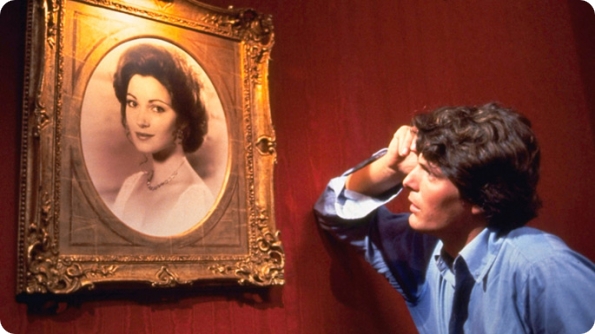
- Editor's note: The following represents a brief distillation of Dr. Mortimer Adler's Syntopicon Essay on Desire, one of his 102 "great ideas" of history, plus my own thoughts on Desire, with particular reference to romantic love.
Adler: "In Darwin, Mill, James, and Freud ... the word 'desire' primarily signifies a cause of animal and human behavior. It is one of the basic terms in psychological analysis, covering that whole range of phenomena ... by such terms as wanting, needing, craving, wishing, willing..."
Hunger and thirst are often used as symbols of desire, and therefore the words "appetite" and "desire" are commonly used as synonyms.
- "Appetite" renders the meaning of "desire" as emptiness, a deficit to be made whole or filled.
For this reason, "desire" easily associates romantic love with that of wanting.
|
Desire is the need to add something to yourself
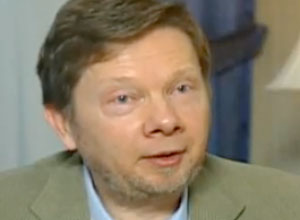
an excerpt from Eckhart Tolle's book, "Stillness Speaks":
Most people’s lives are run by desire and fear.
Desire is the need to add something to yourself in order to be yourself more fully.
All fear is the fear of losing something and thereby become diminished and “be” less.
These two movements obscure the fact that “being” cannot be given or taken away. “Being” in its fullness is already within you. Now.
|
|
the universe isn't big enough for the two of us

Avengers: Endgame (2019); Thanos (Josh Brolin)
Desire as the need to add something to oneself reaches for ultimate metaphor in super-baddie, Thanos (“Thanatos,” an ancient Greek word for “death,” arose in mythology as the deified personification of Death).
This arch-villain could never be satisfied ruling over a mere billion or trillion stars and planets. He needs all of the universe as his domain. To prevent insurrection and overcrowding in the cosmos, he decides to kill 50% of all intelligent life everywhere across the universe's diameter of 93 billion light-years. Later, when the Avengers take exception to his retirement plan, now vowing “no more mister nice guy,” Thanos resolves to go after the recalcitrant half for an even 100%, and just start over with new life subservient to his wishes.
I decided to feature Thanos here for one reason: He represents a dramatic and colorful extreme to which the Needy Little Me will go if invested with all power. Thanos is not unusual, but for the scope of his ability to perform. In terms of attitude and spirit, we find his ilk well represented in society.
Many times in my writings I have stated that any person – this means you and me – is capable of any crime, any atrocity, if adequately provoked, if laboring under sufficient unenlightenment. In such case, the dysfunctional ego’s inner ravings of “I don’t have enough” because “I am not enough” will prompt one to act in “self-defense.” All unkindnesses, all insults, all wars, we need to understand, begin as self-defense. They had to attack, they had no choice, you see. And the ensuing incivility and violence is always completely justified, perfectly reasonable – to the insane Needy Little Me.
Unrelated footnote: Today there is a rise of good feeling toward socialism as a form of government. All forms of government in this world, led by the ego, will lead to our destruction, but some will take us there faster than others. The problem with socialism – the main problem among many – is that it concentrates power in the hands of a few. They will promise you anything to gain the ascendancy, but eventually will allow you but a few crumbs of largesse, as a ruling elite, offering to "save" you, feasts on wealth created by your labor.
|
|
You’ve heard the saying that fear and greed move the stock market. While this is true, it obscures the fact that all activities of the unenlightened mind, the egoic “false self,” are managed by the same motivators.
Let’s translate “fear and greed” as “fear and desire.” We speak of desire here as relating to inauthentic needs. However, to clarify even more, let’s sharpen the above definitions of fear and desire:
All human activity that’s impelled by the “false self” represents either (1) an effort to enhance and add to itself, due to perceptions of “I don’t have enough” because “I am not enough” – all this is egoic desire; however, (2) when the dysfunctional ego deems itself to be under attack, experiencing the threat of diminishment, of becoming less, of imminent loss of some sort, then its thoughts and deeds will be motivated by fear.
true self versus false self
But what is this “inauthentic desire” based on “inauthentic need”? It might be asked, aren’t all needs authentic? If we feel that we require something, doesn’t this speak to real need on some level, or why would we feel a need for it? On the illusory level of the “false self,” it will seem very real.
content versus structure
This insane part of us feels that “more content” will save it from feelings of “I don’t have enough.” But this is illusion. All the “content” in the world, after a while, a short while, will mean nothing to the ego. Soon it will want what’s on Mars, too. The ego’s problem is “structural” and no amount of “content” will remove its systemic unease. Only a shift -- an upward one -- of consciousness will be its savior.

What does it mean, an “upward shift of consciousness”? It means that, instead of viewing the universe as shortage and lack – “the glass is half empty,” which is the “false self’s” perspective -- one must realign one’s spirit as founded upon the “true self.” This view is one of destined abundance and prosperity, of living under God’s care and direction -- “the glass is half full,” with always more to come.
As the concept of “desire” is often used to describe a quest for a sexual partner, let’s keep in mind that “content” versus “structure” very much applies here, too. John and Mary cannot find their lasting bliss if dominated by egoic desire. They believe in the “many fish in the sea” theory of romance, that is, in potentially unlimited content when it comes to choosing a mate. But the very idea of “choosing” a mate immediately causes penalty flags to drop.
Further, John especially, concerning “content” related to unlimited sex, if he could get away with it, would have a thousand women at his call, just the way it’s done with the despots of history and their harems, or the “rich and famous” today with, as Marlon Brando put it, “women coming in the front door and going out the back window.” But unlimited content, regarding sexual conquest as means to satisfaction, is an illusion. It will not fill the existential void. All the women in the world, and those on Venus, too, would not satisfy the desire of the insane ego’s “I don’t have enough.”
The true mate, the “soulmate, myself,” is not your choice. She's not necessarily the one you thought you'd want; she will grow to be such, later, when one receives one’s eyes, but she comes answering authentic need, authentic desire, the requirements of the true self.
Only she can answer the “structural” problem; only she can finally put an end to the restless and roving eyes seeking for unlimited content.

|
|
to the Small Ego, loving and wanting are the same

an excerpt from Eckhart Tolle's writings:
What is conventionally called “love” is an ego strategy to avoid surrender... The ego uses that person as a substitute to avoid having to surrender. The Spanish language is the most honest in this respect. It uses the same verb, te quiero, for “I love you” and “I want you.” To the ego, loving and wanting are the same, whereas true love has no wanting in it, no desire to possess or for your partner to change. The ego singles someone out and makes them special. It uses that person to cover up the constant underlying feeling of discontent, of “not enough,” of anger and hate, which are closely related. These are facets of an underlying deep seated feeling in human beings that is inseparable from the egoic state.
When the ego singles something out and says “I love” this or that, it’s an unconscious attempt to cover up or remove the deep-seated feelings that always accompany the ego: the discontent, the unhappiness, the sense of insufficiency that is so familiar. For a little while, the illusion actually works. Then inevitably, at some point, the person you singled out, or made special in your eyes, fails to function as a cover up for your pain, hate, discontent or unhappiness which all have their origin in that sense of insufficiency and incompleteness. Then, out comes the feeling that was covered up, and it gets projected onto the person that had been singled out and made special - who you thought would ultimately “save you.” Suddenly love turns to hate. The ego doesn’t realize that the hatred is a projection of the universal pain that you feel inside. The ego believes that this person is causing the pain. It doesn’t realize that the pain is the universal feeling of not being connected with the deeper level of your being - not being at one with yourself.
The object of love is interchangeable, as interchangeable as the object of egoic wanting. Some people go through many relationships. They fall in love and out of love many times. They love a person for a while until it doesn’t work anymore, because no person can permanently cover up that pain.
Only surrender can give you what you were looking for in the object of your love. The ego says surrender is not necessary because I love this person. It’s an unconscious process of course. The moment you accept completely what is, something inside you emerges that had been covered up by egoic wanting. It is an innate, indwelling peace, stillness, aliveness. It is the unconditioned, who you are in your essence. It is what you had been looking for in the love object. It is yourself. When that happens, a completely different kind of love is present which is not subject to love / hate. It doesn’t single out one thing or person as special. It’s absurd to even use the same word for it. Now it can happen that even in a normal love / hate relationship, occasionally, you enter the state of surrender. Temporarily, briefly, it happens: you experience a deeper universal love and a complete acceptance that can sometimes shine through, even in an otherwise egoic relationship. If surrender is not sustained, however, it gets covered up again with the old egoic patterns. So, I’m not saying that the deeper, true love cannot be present occasionally, even in a normal love / hate relationship. But it is rare and usually short-lived.
Whenever you accept what is, something deeper emerges than what is. So, you can be trapped in the most painful dilemma, external or internal, the most painful feelings or situation, and the moment you accept what is, you go beyond it, you transcend it. Even if you feel hatred, the moment you accept that this is what you feel, you transcend it. It may still be there, but suddenly you are at a deeper place where it doesn’t matter that much anymore.
The entire phenomenal universe exists because of the tension between the opposites. Hot and cold, growth and decay, gain and loss, success and failure, the polarities that are part of existence, and of course part of every relationship.
Editor's note: See my article on "Surrender and Acceptance."
|
Because "desire" is equated with an emptiness needing to be filled, theologians such as Augustine and Aquinas assert that God has no desires as emptiness would suggest imperfection in the Divine essence.
John Locke speaks of desire's emptiness as "the uneasiness a man finds in himself upon the absence of anything whose present enjoyment carries the idea of delight with it"; in other words, as Adler points out, we "desire the things we love but do not possess."
|
I can't contain all of this pain...

Wild For You Baby
Nights I can't sleep
My tears are cheap
I'm losin' hold of my senses
I can't contain all of this pain
And it's making me wild for you, baby...
|
The great psychologists draw a distinction between "natural desires" and "conscious desires."
Adler: "The word 'conscious' literally means 'with knowledge.' Creatures which lack the faculty of knowing cannot desire consciously." Freud speaks of "repressed desires" - those which should occupy our awareness "with knowledge" but due to pain and fear have been buried in the subconscious. "The repressed desire is made to operate unconsciously by being repressed, which does not prevent it from influencing our conduct or thought, but only from intruding its driving force and its goal upon our attention."
Spinoza asserted that human desire is a function of constitution, that is, as humanity's "nature is constituted in this or that way, so must his desire differ from another." David Hume commented similarly, such that, if we were geese or horses our desires, and our morality, would find extension from a lower-order constitution. Dr. Robinson of Oxford summed up this view, in that our desires, along with a sense of morality, the whole issue of good and evil, "are in our gut."
Desire is an unsteady friend. "While what we crave is [lacking]," Lucretius writes, "it seems to transcend all the rest; then, when it has been gotten, we crave something else."
- Eckhart Tolle: the Small Ego "wants to want more than it wants to have."
But, of course, every "John and Mary" of the world have already discovered this - famously set to music by the Beatles' "love that has a nasty habit of disappearing overnight."
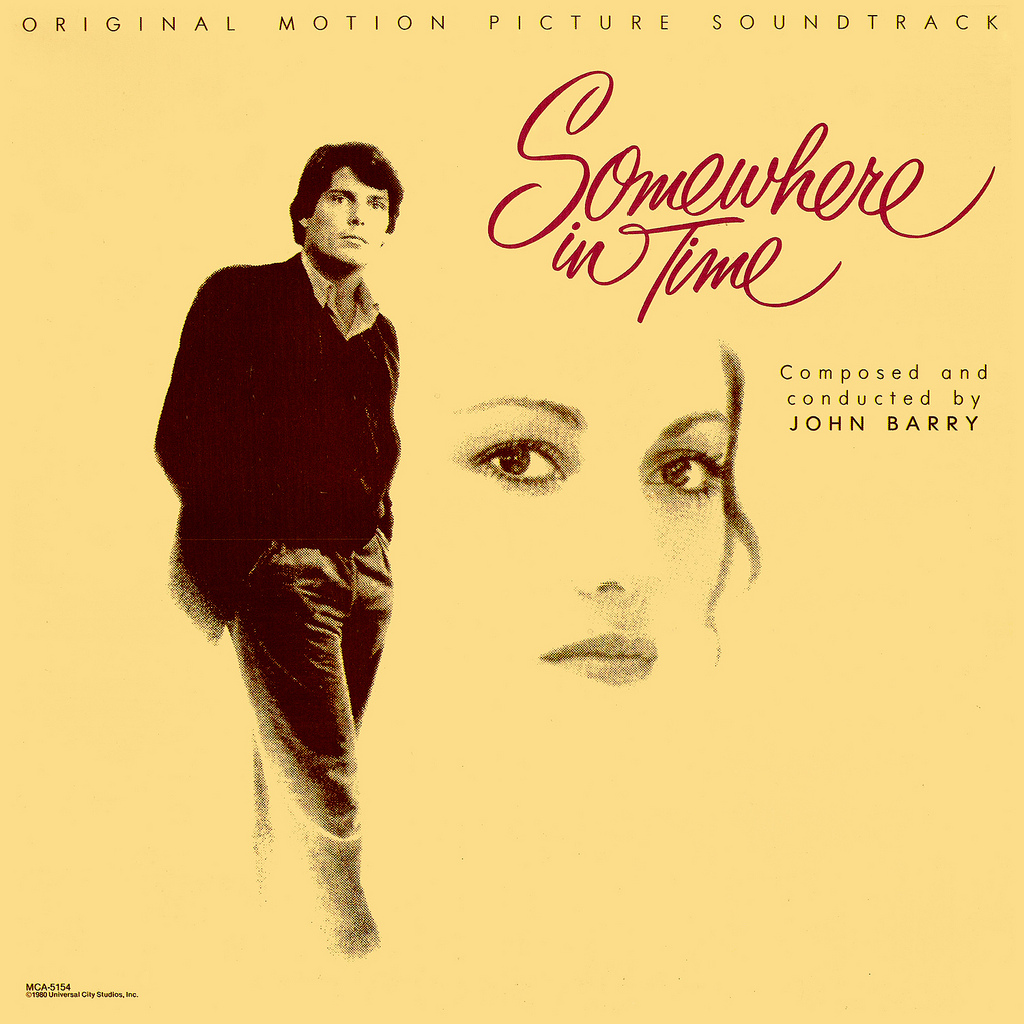
The Problem of Desire:
How shall we ever find wholeness and completeness, peace and inner-harmony, if Desire is built upon the ephemeral satisfaction of "appetite," a sense of emptiness? How will we find permanent happiness, even in Summerland, if the thirst of desire cannot be quenched?
Some time ago I met with a friend, a former church minister, at a coffee shop. He told me of a book he was reading, and commented on the traditional view that God can have no desires as this would suggest an imperfection in the Divine nature.
I agreed with him in principle, however, if taken too far, we come to an indefensible position: "Do we not say that God has plans and goals for humankind? And if this is true, then surely we must also say that God desires success for these plans. Does not God desire good things for his children? - we would not deny this, and so, how can we claim that God has no desires?"
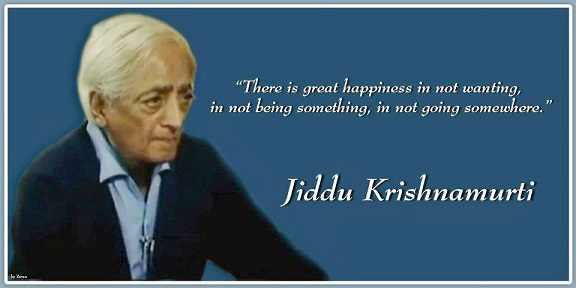
Desire issues from two different sources: we need to separate the 'true' from the 'false'
Desire as expression of "appetite," an animal hunger to be satisfied, runs much of our troubled world. Dr David Hawkins, in his "levels of consciousness," ranks "desire" at level #125, just above "fear" at #100 and below "anger" at #150; all of which reside well below the bare-beginnings of maturing consciousness at level #200.
.jpg)
"gimme, gimme, I need, I need, I need"
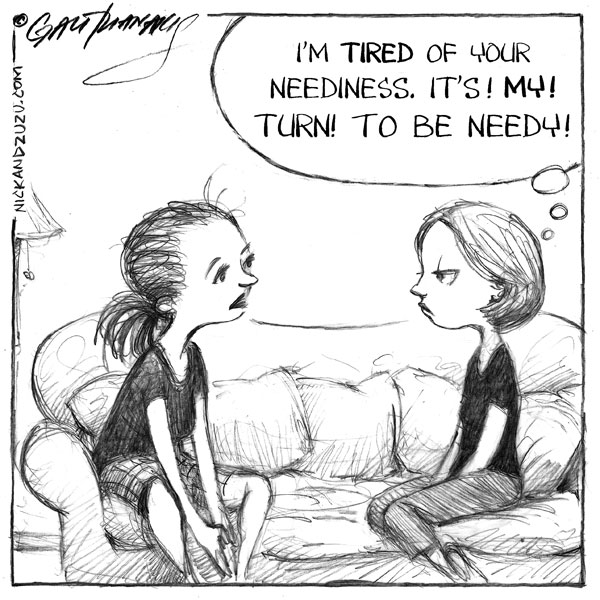
Desire, as crafted by the Small Ego, the "false self," most definitely is dysfunctional and has no place in the mind of God which knows only abundance.
But the greater and better part of our natures, the "true self," if we choose to access it, is far removed from animal spirits - because it finds its life and essence in the very energy and consciousness of God.
When we live and draw our strength from the deeper inner-person, that sacred part of us "made in the image," our desires will conform to those of God.
On that level of being, that which we desire is no longer our choice, as such, but will represent a resonance and harmony with one's destiny and place in the universe; the most important expression of which will be one's romantic Twin-Soul - not our "choice" but a gift from God, a revelation of the Divine will for our lives.
Desire in this form is no transitory flight of whim or fancy, but constitutes something as enduring and permanent as the sacred soul from which it derives.
As a closing thought I would direct you to one of the featured quotations on "desire." Most thinkers on this subject stumble along in confusion inspired by the Small Ego - but Abraham Maslow the great psychologist gets it right.
“It isn't normal to know what we want. It is a rare and difficult psychological achievement.” Abraham H. Maslow
Maslow understood that only the enlightened person can become aware of one's true desires. Such knowledge is most precious and far too high for those who repress destiny and authentic desire; sacred insight will not be ours as long as we are led by the "false self" with its animal-spirit promptings.
|
for a thousand summers, I will wait for you...
Eric Kunzel and the Cincinnati Pops
I Will Wait For You
If it takes forever I will wait for you
For a thousand summers, I will wait for you
Till you're back beside me, till I'm holding you
Till I hear you sigh here in my arms...
- Editor's note: the desires and demands of true love, if required, will wait a thousand summers, even though, as we learn from John Sebastian (below), an extra minute without her is too much to bear.
|
|
the great relief of having you to talk to...
John Sebastian at Woodstock
Darling Be Home Soon
"Darling, be home soon, I couldn't bear
to wait an extra minute if you dawdled,
my Darling, be home soon, it's not just
these few hours, but I've been waiting
since I toddled for the great relief of
having you to talk to, and now... I think
I've come to see myself at last, and I
see that the time I spent confused
was the time I spent without you..."
- Editor's note: "The great relief of having you to talk to" is one of the all time most wondrous lines of romantic-music lyricdom. John Sebastian, a favorite song-writer, often touches upon exquisitely meaningful romantic-love themes. I also like his term "darling companion," which says so much, speaks to destiny and prime significance of authentic romance; and also the phrase, "the full measure of your giving, you don't yet understand." I like to think of this "full measure" as Woman, catalyst to enlightenment: "Do you believe in the magic of a young girl's heart?" - you may doubt it, but only to your perdition.

|
living in the wonder as the heavens open
|
"Ever desireless, one can see the mystery; ever desiring, one sees only the manifestations. And the mystery itself is the doorway to all understanding."
The Tao Te Ching, the first verse
These cryptic, mystically-derived statements of Eastern wisdom rank as some of the most profound ever written.
"Ever desireless" means having escaped the distorted perceptions of the Small Ego which sees only emptiness, lack, and deprivation. In this hall-of-horrors state of mind, neurotic desire, as attempted antidote, springs easily to the forefront of diminished consciousness.
A "desireless" frame of mind, one that flows in a sense of abundance and fullness of God's domain, allows one to see "the mystery."
And what is "the mystery"? We are informed - within the verse itself - by means of "mashal" explanation.
"The mystery" - that which, before discovering the Tao's phrase, I termed, "living in the wonder" - becomes a most keen awareness, a heightened level of consciousness, that all good things of God fill one's life, one's destiny; that, an all-encompassing, universal, unity pervades and underlies all existence, which is to say, there is nothing else, nothing other than this singular totality.
Those who "desire" see only the "manifestations," that is, the ebb-and-flow of occurrences and happenings at the surface of mundane life. Desire, the Small Ego's needing-and-wanting, cannot perceive a larger picture.
But now we come to the grandest statement of all:
- "the mystery itself is the doorway to all understanding."
Living in "the mystery," "the wonder," causes the heavens to open, clouds roll back, and every day one is treated to new insights of ultimate reality, new visions of cosmic understanding, the shimmering-glistening-sparkling vista of life lived as a son or daughter of God.
Editor's note: Consider how the word "mystery" is used here compared to definition offered by Orthodoxy. The Tao speaks of the possibility and likelihood of enlightenment, of human dignity and self-respect, while Big Religion, as it employs the term "mystery," seeks to keep people dependent and subservient to an elite hierarchy. Father Benson explains:
"The laws that govern the spirit world are not complex laws that none can understand. There are many things in spirit life which we cannot understand yet, just as there are many things upon Earth which cannot yet be understood... but [even now, whether we're on Earth or in Summreland], we can see plainly the reason for some law, or truth, or whatever it may be. [But it's different with the teachings of Orthodoxy.] We are now treated to a farrago of words that collectively possess not one grain of meaning or sense, only to be told that it is a ‘mystery’, or something that under Divine Providence we are not meant to know."
|
the Small Ego 'wants to want' more than it 'wants to have'
|

an excerpt from Eckhart Tolle's writings:
WANTING: THE NEED FOR MORE
The ego identifies with having, but its satisfaction in having is a relatively shallow and shortlived one. Concealed within it remains a deep seated sense of dissatisfaction, of incompleteness, of “not enough.” “I don't have enough yet,” by which the ego really means, “I am not enough yet.”
As we have seen, having – the concept of ownership – is a fiction created by the ego to give itself solidity and permanency and make itself stand out, make itself special. Since you cannot find yourself through having, however, there is another more powerful drive underneath it that pertains to the structure of the ego: the need for more, which we could also call “wanting.”
No ego can last for long without the need for more. Therefore, wanting keeps the ego alive much more than having. The ego wants to want more than it wants to have. And so the shallow satisfaction of having is always replaced by more wanting. This is the psychological need for more, that is to say, more things to identify with. It is an addictive need, not an authentic one.
In some cases, the psychological need for more or the feeling of not enough that is so characteristic of the ego becomes transferred to the physical level and so turns into insatiable hunger. The sufferers of bulimia will often make themselves vomit so they can continue eating. Their mind is hungry not their body. This eating disorder would become healed if the sufferers, instead of being identified with their mind, could get in touch with their body and so feel the true needs of the body rather than the pseudo-needs of the egoic mind.
Some egos know what they want and pursue their aim with grim and ruthless determination – Genghis Khan, Stalin, Hitler, to give just a few larger-than-life examples. The energy behind their wanting, however, creates an opposing energy of equal intensity that in the end leads to their downfall. In the meantime, they make themselves and many others unhappy, or, in the larger-than-life examples, create hell on earth.
Most egos have conflicting wants. They want different things at different times or may not even know what they want except that they don't want what is: the present moment.
Unease, restlessness, boredom, anxiety, dissatisfaction, are the result of unfulfilled wanting. Wanting is structural, so no amount of content can provide lasting fulfillment as long as that mental structure remains in place.
Intense wanting that has no specific object can often be found in the still-developing ego of teenagers, some of whom are in a permanent state of negativity and dissatisfaction.
The physical needs for food, water, shelter, clothing, and basic comforts could be easily met for all humans on the planet, were it not for the imbalance of resources created by the insane and rapacious need for more, the greed of the ego. It finds collective expression in the economic structures
of this world, such as the huge corporations, which are egoic entities that compete with each other for more. Their only blind aim is profit. They pursue that aim with absolute ruthlessness. Nature, animals, people, even their own employees, are no more than digits on a balance sheet, lifeless objects to be used, then discarded.
The thought forms of “me” and “mine,” of “more than,” of “I want,” “I need,” “I must have,” and of “not enough” pertain not to content but to the structure of the ego. The content is interchangeable.
As long as you don't recognize those thought-forms within yourself, as long as they remain unconscious, you will believe in what they say; you will be condemned to acting out those unconscious thoughts, condemned to seeking and not finding – because when those thought-forms operate, no possession, place, person, or condition will ever satisfy you. No content will satisfy you, as long as the egoic structure remains in place.
No matter what you have or get, you won't be happy. You will always be looking for something else that promises greater fulfillment, that promises to make [complete] your incomplete sense of self ... and fill that sense of lack you feel within.
|
|
Eckhart Tolle:
true love is transcendental; without recognition of the 'true self' within, there can be no authentic romance for couples

"What is commonly called 'falling in love,' in most cases, is an intensification of egoic wanting and needing.
"You become addicted to another person, or rather to your image of that person.
"It has nothing to do with true love, which contains no wanting whatsoever."
"True love is transcendental. Without recognition of the formless within yourself, there can be no true transcendental love. If you cannot recognize the formless in yourself, you cannot recognize yourself in the other. The recognition of the other as yourself in essence – not the form – is true love.
"As long as the conditioned mind [run by the 'false self'] operates and you are completely identified with it, there’s no true love. There may be substitutes, things that are called “love” but are not true love. For example, “falling in love”… [the] aspect of affinity with another form [in terms of] male/female. You can be drawn to another body in a sexual way, and it’s sometimes called “love”.
"Especially if the sexual act is denied long enough, it’s more likely to develop into obsessive love…so much so, that in cultures where you could not have sex until you were married, falling in love could be a huge thing and could lead to suicide.
Editor’s note: This “obsessive love,” drawing strength from a puritanical forever-say-no culture, might not only lead to suicide if denied, a “Romeo and Juliet” complex, but to hatred and vengeance if one is rejected, or even perceived to be spurned, by a hoped-for lover. These extreme cases, by no means unknown, offer clear instruction that, unless romantic love is founded upon, what Tolle calls, a "transcendental" awareness – even if the lovers are, in fact, destined as Twins, but without present spiritual maturity to recognize this fact – the “false self” will ruin a couple’s chances for authentic relationship. At least for now.
"Naturally, there is an affinity of the male/female, the incompleteness of this form. The primary incompleteness of this form is that you are either a man or a woman. The oneness has become the duality of male/female. The pull towards the other is an attempt to find wholeness, completeness, fulfillment through the opposite polarity, in an attempt to find the Oneness. That lies at the basis of the attraction. It’s to do with form, because on the level of form you are not whole – you are one half of the whole...
"What is commonly called 'falling in love' is in most cases an intensification of egoic wanting and needing. You become addicted to another person, or rather to your image of that person. It has nothing to do with true love, which contains no wanting [that is, neurotic craving based on a sense of emptiness and neediness] whatsoever."
it's so easy to fall in love
Editor's note: Recently, a Word Gems reader asked a question about the nature of authentic romance. I said that the typical male, led by biological impulse, could fall in love ten times a day -- as Buddy Holly sang, “It’s so easy to fall in love.” And so meaningless, as commonly experienced.
Eckhart is right. The typical brain-chemical induced male-female ritual of “falling in love” is just a dramatic outburst, “an intensification, of egoic wanting and needing.” And if the right stimulus crosses one’s bio-radar screen, “falling in love” can happen very quickly – like a prairie fire rapidly consuming a field of grass, but then, just as quickly, burning itself out.
This is the ephemeral fervency that replenishes the human species, spawns marriages, and makes the world go round. But it’s also “the love that has a nasty habit of disappearing overnight.”
jaded
After thousands of pages in articles and books, why should I say more about love here? By now we are aware of the problem. Even so, I would like to add a paragraph or two because, while most of us know of the “miserably married,” few believe there is a solution. As “The Wedding Song” laments, most of us, jaded and disillusioned, no longer truly believe in love; not really. We might believe in the temporary high of “falling in love,” but not in the unquenchable joy of transcendent marital Twin love, the eternal happiness of darling companions. That sounds like a fairy-tale to most of us.
Even many of the spiritual teachers who know about the “true self” and the “false self” do not believe in the eternal marriage. They think that the joy of “going within,” of finding the inner peace, is the ultimate satisfaction -- and that those who insist on hoping for fulfillment with a romantic mate are just deluded, living in a fantasy.
ultimate reality
What I'd like to add is this; an answer that will satisfy few, at the moment: The true romantic love, “something never seen before” in this world, is an ecstasy unavailable to the individual. And why is that? because the intimacy of the true marriage is meant to mirror ultimate reality, a microcosm of the Oneness known only to Mother-Father God.
This state of bliss is not something achieved once and for all, in a moment. It’s something that a Destined Two will grow into, will “travel on” toward, over the coming unending future; that is, they will progressively enter higher states of consciousness, and closer degrees of intimacy.
It’s something that has to be experienced, not part of "common sense." And until people do experience it we will read of reports by some concerning how romantic love is just a fantasy to be outgrown and discarded.
so magnetic, so overwhelming
As the ancient Spirit-Guide Silver Birch expressed it: the true love, which happens for each individual, for each destined couple, only once, whether in this world or the next, is "so magnetic, so overwhelming," as to forever displace all other feelings of pleasure; such that, this mystical experience will now, in a sense, define one's life, become a milestone in one's mental history, commemorating the time when one truly became alive, that is, with meaning, purpose, wholeness, and joy. It is the extreme delight which, once possessed, never leaves one's consciousness.
“it’s so easy to fall in love,” and “people tell me love’s for fools, but here I go breaking all of the rules” – because – “where you’re concerned, my heart has learned” that... it’s something new and different this time and no fantasy…
|
|
“Why can’t I find my forever-soulmate?”
Many of the concepts introduced here on Word Gems are controversial, but none more so than that of finding true love.
People often feel that I am incorrect to say that true love is a most rare commodity in this world and virtually none has experienced the real thing.
There are different ways of approaching this problem. Tolle uses the phrase “True love is transcendental,” that is to say, all true love is of God. And I sometimes assert that love must be founded upon a recognition of the “true self,” one’s link to Universal Consciousness. All these, variantly expressed, refer to the same thing, and we should not be terribly surprised to learn that authentic love will not be found on every street corner in this troubled world. We delude ourselves to suggest otherwise.
“falling in love,” in most cases, “is just an outburst of egoic needing and wanting”
We don’t like talk like this. We want to believe that what we felt, in those moments of ecstasy – albeit, rare and so fleeting in one’s life’s experience – at least should be counted as real. We protest against charges that might diminish. But, we have to admit, almost everyone, or let’s just say ‘everyone,’ though in receipt of these feelings, has not found lasting happiness. Therefore, we are forced to concede, "What is the real problem in this process? - or, with us?"
let’s take a wider view
When we say that “true love is transcendental” or “of God” or, if it is to endure, must be based on “Universal Consciousness,” we confuse ourselves to limit a quest for authentic love to the arena of the romantic. In other words, all forms of love, in every aspect of human interaction, will eventually break down and disappoint, if not sustained by the “true self.” All forms of love, if orchestrated by the “false self,” are merely expressions of “egoic wanting and needing.” Let’s look at several examples.
a mother’s love
Well, who could question a mother’s love? It’s virtually sacrilegious to do so. We even have popular proverbs affirming the sacrosanct status: we speak of “it's American as motherhood and apple pie,” meaning, these are unassailably and intrinsically wholesome and inviolable. However, in my travels and discussions with people, I am surprised how often I come across people who have been traumatized and scarred by unloving mothers.
How does this happen? Even though “motherhood” is a natural and sacred function, if led by the dysfunctional ego, “motherhood” might devolve to just one more role that the ego plays in order to get what it wants. The egoic mother wants to be wanted. She’s that young "Mary" who entered marriage because “it felt so good to be chosen” and not “left on the shelf.”
In similar vein, when children come along, the egoic mother revels in being needed in this new and special way; never in her life has another human being needed her so much, and it feels so good to be in such high demand. At this stage, all is well in paradise. Mary has an adoring captive little audience, dreamed about since she was a young girl. However, as little Johnny or Suzie grows up, and begins to have a few thoughts of his or her own, mom can feel very threatened by this insubordination.
Suddenly the once-cuddly child is not so precious anymore. Johnny and Suzie no longer need mother as much, less so with each passing day, and now dear mom feels her job security draining away. Who will she be, she worries, "if I’m no longer needed as a mother?" She needn't worry. As a human being she enjoys a vast, uncharted human potential which far supersedes the role of "mother"; however, quite dysfunctionally, her sense of self-worth has attached itself to a temporary narrow role she's playing; that of, “dutiful loving mother.”
the new unpardonable sin
Who could argue against motherhood? she consoles herself; but, “now you tell me I’m not needed anymore?” If a mom is not very careful, she might begin to see her own children as threats to her identity, to the role she’s been playing; and, in severe cases, she might become a life-long enemy to the child, whose unforgiveable sin had been that of growing up.
all egos want something from you
We’ll look at some other examples, but let’s remind ourselves of what we’re up against. All egos want something from you. We use the phrase “egoic.” This means that every thought and deed of the ego is tainted with an aspect of “self.” Other people are mere supporting players in a drama starring the ego; other people are evaluated in terms of “How can you enhance, add to, or support my sense of neediness?” When the other person “fits into my story,” then the ego will say, “I love you” or “we’re friends” or “you’re a good little boy or girl,” but the moment the enhancement ends, now you’re deemed to be insubordinate to the ego's fragile sense of self.
high school friends
Twenty-five years ago when my daughter was a young teen, I recall having a conversation about her friends at school, especially one good friend. She believed that her special friend would always be in her life. Feeling the need to offer a word of balance, I commented that most high school friends drift apart after graduation. This seemed a foreign concept to her. However, almost immediately after commencement, to her great dismay, the special friend no longer wanted to be friends. It seemed that she’d decided to adopt a lifestyle which, it was imagined, would be condemned by my daughter; consequently, the once-special friend not only drew back but assumed a position of animosity.
respected teachers
In high school I had taken a class from a particular teacher for three years. In my senior year, recognizing a schedule-conflict, I decided to break with this regimen in favor of studying physics.
Editor's note: This makes me smile. I didn't actually study physics, I mean, not so much. I attended class and pretended to be a physics student. My time of on-fire desire to study was still a few years away.
I recall what happened next. I was sitting at a table in the lunchroom, filling out forms to sign up for various classes. The teacher in question, with an air of seeming friendliness, strolled by and stopped by my table. I informed him that I couldn’t be in his class this year. Upon learning of this “betrayal,” saying not a word, he immediately spun around and left me. For that entire coming year, he treated me as pariah and never looked at me again.
when you change your life-views, be prepared to lose your friends and family
Cult religions, cult politics, too, employ a technique of “shunning” if you dare to disagree with the status quo. If you become a thinking person, and begin to see alternative answers to ones subscribed to by those around you, "the group," you will become a threat to their world-paradigm. Family and friends will now flee from you and your poisonous ideas. In times past, you might have been near and dear to these loved ones, but, for most of them, almost all, you will now be counted as something akin to an agent of Satan. You’ve become a walking billboard, a continual reminder, to them of their lack of critical thinking; and they will hate you for this.
"To go against the dominant thinking of your friends, of most of the people you see every day, is perhaps the most difficult act of heroism you can have." Theodore H. White, The Making of the President 1960
|
more than drinking the koolaid
The long reach of cultism encompasses much more than crackpot churches. The root idea of cult offers the sense of "cut." This core concept of "cut" leads us to images of refinement and refashioning and, by extension, development, control, pattern, order, and system.
Cultism as systemization finds a ready home in religion and philosophy which seek to regulate and redistill the patterning and ordering of ideas. However, in a larger sense, the spirit of cultism extends to every facet of society. We find it scheming and sedulously at work in politics, academia, family, corporations, entertainment, science, artistry – anywhere power might be gained by capturing credulous and fear-based minds.
See the “cultism” page for a full discussion.

|
in her head, she was already cutting the cake
In one of the featured vignettes of “The Perfect Mate,” the “Lincoln and Mary Todd” story, I offered dialogue between Kairissi and Elenchus which might add to our present discussion:
K. Women, led by the ego and biological impetus, can be just as scheming and disingenuous. John, at times, in his bio-madness, is consumed with the craving to plant seed; but Mary is just as neurotic and driven to want to nurture that seed. All of this works well to perpetuate the species, and Mother Nature is very pleased with the proceedings, but Madame Destiny is appalled by this tawdry display and proclaims that none of this, fundamentally, has a particle to do with true love.
E. The author told me a story or two from his younger days that supports what you say. At age 18, upon graduating from high school, he visited a boy-cousin in another state. The cousin arranged a double-date for them. The author’s date was a fine and pretty girl, smart, a good student, on her way to attend college in the fall to become a nurse; even so, he felt no compelling attraction toward her. Having attended a movie, at the end of the evening, upon dropping her off at her house, with a “good-bye” kiss on the cheek, she asked if they might write to each other. Half-heartedly, in politeness, he agreed. And she did write, and the letters were perfumed, as she spoke of the future suggestively. After a couple of these letters, discerning the imbalance of affections, but not in her favor, he forwarded his indication that they should no longer write. To his utter shock and great dismay, he received a reply most venomous, laced with “threatenings and slaughter.”
K. (sighing) She’d spent only three hours with him, decided she’d won the lottery, and had already set the wedding date and was even cutting cake. She really didn’t care so much for him as a person but only as a stepping-stone to that “good and well-ordered life” she’d been programmed to want.
E. He recounted another incident, in high school. A classmate was infatuated with him, but he did not recall ever even speaking with her. She crafted a plan to be alone with him. One night, after a school function, as he was driving away, another car pulled up alongside his. An upperclassman and his girlfriend were in the frontseat and in the backseat was the girl-in-question. The driver asked him if he wanted to park his car and avail himself of the awaiting company in the backseat. He declined the generous offer and drove away. However, this girl, mightily slighted by this rejection, became a lifetime nemesis.
K. (sighing) Look how easy it is to enrage a thwarted ego. You can be minding your own business, just trying to live your life, but when “Mary Todd” comes calling, trying to get you into bed, and you don’t want to play, now you’ve made an enemy for all time.
That’s right. You really don’t have to do anything to make a lifelong enemy of an ego. All you have to do is to fail to give what that ego wants. That’s more than enough to hate you with a special spice.
“Why can’t I find my forever-soulmate?” is really the wrong question. We need to cast a wider net and ask, “Why can’t I find the eternal best friend, or the eternal motherly love, or the eternal good neighbor?”
Do you see? Every aspect of human interaction, what should be a natural “milk of human kindness,” sooner or later – and probably sooner rather than later – will break down if it’s managed by the dysfunctional ego.
The ego can’t help itself. It’s deep sense of neediness – the “I don’t have enough” because “I am not enough” – makes it insane; ego-insane. It’s helplessly relegated to the category of Jesus’ dictum, “They know not what they do.” Every thought and deed of the ego is laced with “How can you fit in with my story, how can you add something to my sense of incompleteness, how can you strengthen the fake role I’m playing which is designed to get what I want?”
Those who play along with the schemes of the ego are classified as "lover" or "good friend" or "good child" or "good student" or "good church member"; but those who fail to enhance the ego are shunned, hated, black-listed, and vilified.
Editor’s note: Adrian offered a comment:
Every addiction arises from an unconscious refusal to face and move through your own pain.
“The concept of the counterfeit comes up time and time again in Gnostic thought. It seems that falling in love has its counterfeit too when we look to others to assuage our inner distress. We place a heavy burden on them to make it better, and, when it fails, as it surely must, we blame them (and outer circumstances in general) for that failure. It seems there is no escaping the need for solitude, for in solitude we acknowledge responsibility for outer circumstances [rather than blaming] other people [who] are not doing something [which, we believe, makes] us unhappy. The unhappiness is there already, circumstances only reveal its presence. Then we get mad at the circumstances, missing the point. It must be disappointing for the ego to admit. [It believes: once you] get yourself figured out, then you will find right relationships. The ego insists that finding the right [and perfect] relationships will sort things out. [This is illusion, but] this [principle] could be applied, I think, to any ‘if only’ proposition: ‘If only I had more money, etc., etc.’”
While any of this is very hurtful to experience, it’s also rather predictable; once you see how the ego operates, nothing will surprise you anymore. The ego is not creative, not really; you can always count on it to advance itself at your expense. This gives rise to another saying, "The ego has no friends or lovers, only accomplices."
Editor’s note: And this is why it’s a truism that any dysfunctional ego, if sufficiently threatened and blinded, is potentially capable of any – yes, any – crime or atrocity ever committed in history. To see this bottomless pit of potential depravity is the beginning of true spirituality and the end of all elitism, of “I thank thee Lord that I am not like other men.”
Is everyone insane?
We’re reminded of the old joke of the aged Quaker couple. He says to her, “All the world is mad, Martha, but me and thee; but, sometimes I wonder about thee.”
This is funny, but as I recount the litany of transgressions against me over the years, I must hasten to remind myself that I too, at times, have served as antagonist to others. There is a saying, and a true one, “A good man spends the second half of his life making up for the sins of the first half.” I know what this means.
Nevertheless, regarding the question “Is everyone insane?” I must offer a counterbalancing view. Yes, most people in this world are ego-insane, and await a better day of enlightenment; however, sometimes, not very often but sometimes, we’re shocked, this time, by something positive. Here and there, people do arise from the madness of the crowd; here and there, people do “come alive” and learn to live from their sacred centers.
When this happens, we remember it all of our lives, as a source of joy and wonderment. I’m thinking of one of my relatives, in her old age, who offered me a mother’s love, and I knew it was genuine, and could never be mistaken as to its authenticity; and I recall another relative, an older man, who, in his old age, treated me like a son, was proud of me and rejoiced in me, and I could never be mistaken as to the authenticity; and I remember a classmate, who I’d not seen in a long time, who offered me genuine warmth and acceptance as a person, as she praised me for certain things of the past.
We are shocked at these occurrences of true love and do not expect them in this world where the ego dominates; but, when they happen, we are given a foretaste of life in the “real world,” a life of authentic love, on all levels of human interaction.
I am reminded of Jesus’ words in the New Testament. He’d been creating a stir with his controversial teachings, and someone said to him (paraphrased),
“Your relatives are outside – your mother and your siblings -- demanding to see you, to take you away. They’re embarrassed by you, and believe that you should be shut down. They say you’re crazy.” Jesus responded with, “Who is my mother and my siblings? I will tell you. My true mother and my true siblings are those who share my spirit; and these outside do not thus share, and they have no part in me.”
Yes, some or many, even those very close to Jesus, said he was crazy. But "inmates running the asylum" is the norm in this world.
“Why can’t I find my forever-soulmate?”
This is what people really want to know. All the other loves are very important, and we won’t ever want to give them up, but the love of the Sacred Beloved is “what we stay alive for.”
Why can’t I find her?
You might be saying, “I’m ready to be with her. I understand the evil of the ego, and I guard against it. So, is this not enough? Why can’t I find her?”
The issue is complex. She might not even be in this world; you might have to find her over there. Or maybe she is here, and you were around her at an earlier time, but you were too ego-insane then to recognize her. Or maybe she’s around you now, but, for the same reason, you cannot presently perceive her secret identity.
But, even if you are one of the few, right now, to have “eyes in your head,” this doesn’t mean that she’s presently ready and “sane.” She might not know you, or want to. Or, if she does know you, she might even hate you. Remember, the ego doesn’t need a good reason to hate someone; anything, some perceived slighting or threat, can set it off. And so the answer to “Why can’t I find my forever-soulmate?” is not so easy to negotiate.
And now you will want to ask another question.
“Can the coming-to-sanity process be augmented or speeded-up?”
The short answer is no. We’re talking about the soul "coming alive,” coming to better levels of awareness. The soul has its own timetable for awakening. There’s nothing you can “do” to trigger a greater sense of “being.”
The fact that you are reading these words might indicate that the “germination” process of the “seed” of the soul, an awakening process, is likely under way. But not necessarily. Many people approach spirituality as one more item on a to-do list. They want to work at it. A lot of trying-very-hard and gritting-of-the-teeth, a straining to come alive. The ego loves “doing” and cannot comprehend a relaxing into “being.” I state this merely to highlight the systemic difficulty. But even this view is wrong. There is no “difficulty” in coming alive, just as the sprouting seed has no “difficulty” in sending out the first shoot. It just happens naturally, with no “German farm-boy” effort required.
However, all this aside, if your interest in these things finds itself burgeoning, you may very well have entered your time to “come alive.” If so, you must wait for your “better half” to engage the same dynamic.
In the meantime, your task will be that of strengthening yourself in terms of sanity. Just because the ego, for you, is down for the count, doesn’t mean that it won’t try to take you over, every day. Some days it will win, and you will feel discouraged, but you must start again. The mental habit patterns of egoic thinking, fortified over a selfish lifetime of constant reinforcement, will not give up without a big fight.
keep coming at you
These temptations toward egocentrism will keep coming at you, and keep coming at you, with vigor, for some years to come. You will need to become mindful of the ego's wiles, as it will often seek to take you over, and back under, to the old ways of self-centeredness. Its forward momentum is very hard to slow down. It will take years of dedicated spiritual practise to neuter it.
And so, do not think that you have nothing to do until she comes. You have plenty to do; not just for yourself, but you'll need to strengthen yourself for her, as well, in advance of that day when the Spirit Guides finally deem you ready, mature enough, to enter your anticipated eternal life of extreme delight; at least, to see it on the horizon. And so, at the right time, for all concerned, they will bring her to you, you don't have to find her -- with your first order of business, probably, that of helping her to overcome the long-entrenched insanity: the fears, the self-loathing, the guilt, the sense of not-enough. It's unlikely to be all "hearts and flowers" for you two from day one; but, she will be yours, you'll finally be with her, and will be glad of it, on any basis.
Elizabeth and Robert
It will be as Elizabeth said of Robert,
Do you know that … I was frightened of you? … I felt as if you had a power over me and meant to use it, and that I could not breathe or speak very differently from what you chose to make me... But the power was used upon me – and I saw … very early … that you had come here to love whomever you should find [the spirit revealed in my writings; no matter my faults or imperfections, as you loved these, too; you loved me "not for a reason"; further, my early attempts at self-effacement and deflecting your love] had just operated in making you more determined [to reach me]…
And so, here she is, your destined Twin Soul - not exactly the way Hollywood pictured the debut, but the ancient Spirit Guides will finally honor your prayers to be with her, your long dreamed-about "forever-soulmate."
They say that you will be her "Wisdom"; that you shall love "whomever you shall find, no matter the faults and imperfections," and that you will have a "power over her" to reconstruct a battered sense of self, by encouraging and cherishing her; they say that you will "draw life and give it back again," and now you know what this means.
|
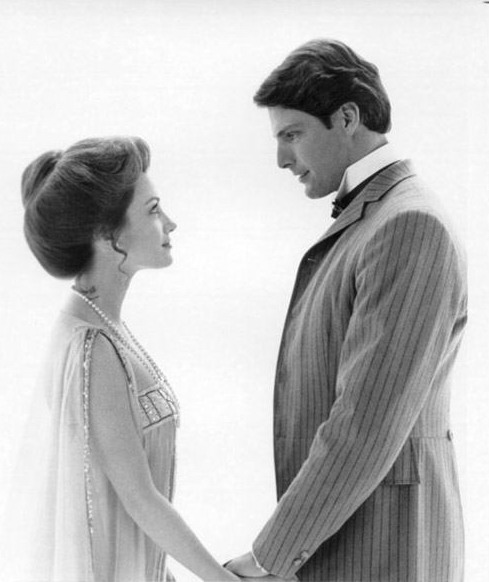
|
John-and-Mary romance as instinctual response
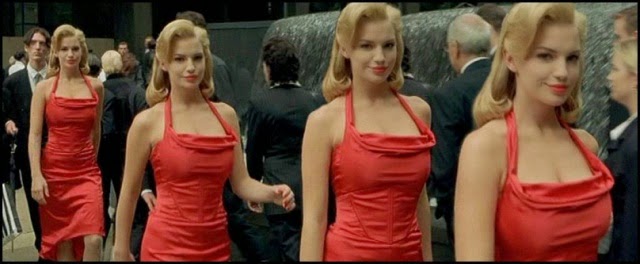
Fiona Johnson, "The Girl In The Red Dress," The Matrix (1999)
supernormal stimulus
Nikolaas "Niko" Tinbergen (1907 - 1988) was a Dutch biologist and is regarded as one of the founders of ethology, the study of animal behavior. His findings, much of which is reported in his seminal writing, “The Study of Instinct” (1951), would earn for him a Nobel Prize (1973).
Among the many animal-behavior discoveries, Tinbergen, along with fellow researcher, Konrad Lorenz, learned that the color red often plays an important part in the mating process.
A particular focus of Tinbergen’s study centered upon what he called the “supernormal stimulus.” This precept would manifest in the construction of an artificial object imbued with a stronger stimulus for an instinct than one supplied by nature. This will become clear when we consider the following interesting examples:

stickleback sees red
The red-underbellied male stickleback, in its territorial protestations, will normally attack other sticklebacks when it sees their red. However, Tinbergen made cardboard versions of the fish, but without great attention to detail, except for the red underside which was painted with more red than found in the real fish. The territorial males mounted a more vigorous attack upon the cardboard fish with the “supernormal stimulus” -- or even against a lump of wax with a red stripe! -- than against the real stickleback intruders.
Editor's note: Tinbergen gained an initial clue as to the secret motivations of the stickleback when a randomly-passing red postal truck caught the attention of the fish in the aquarium, producing an attack-posture!

robin red-breast
A male English robin, in autonomic, stereotypical behavior, will ward off fellow males who venture into his territory. (As I commented to a friend, this is de rigueur on "Animal Planet.") Tinbergen put this stimulus-response to the test by constructing two models: one was simply a tuft of feathers with a bright red stripe (on the left), with the other, a well-crafted and detailed robin but with no red breast (right). The territorial males ferociously attacked the nameless red tuft but gave a pass to the smart-looking mannequin robin.
paper-butterfly dreams
A similar example, Tinbergen made paper butterflies but with exaggerated, more-defined sexual markings. The male butterflies chose the “super-stimulus” paper dreams, moreover, tried to mate with them! while the real-deal butterfly ladies were left idling on the bleachers without a dance partner.
Tinbergen outlines many other examples of programmed animal behavior in “The Study of Instinct,” and you’ll want to check it out.
Mother Nature vs. Madame Destiny, Bio-Man vs. Spirit-Man
What are we to make of sticklebacks set-to-war by the passing of a red postal truck? possibly, Fiona was driving it. Or paper-butterfly dreams, with attempted enactment, while your none-too-happy true love files her nails?
In all of the above examples, Mother Nature scores big. She gets what she wants: the perpetuation of world species. However, as Kairissi and Elenchus discussed, Madame Destiny, for those creatures endowed with a “made in the image” soul, requires something more.
Bio-Man, also well known as “John,” is a thinking animal; but nothing more. He would love to mate with as many females as he could get away with. On the animal level, this is quite normal; all creatures on God’s good Earth are impelled to do this, and Mother Nature loves it.
|

Should you fight and compete, joust for the fine maiden’s handkerchief?
Editor's note:
On “Animal Planet,” as we’ve seen, “faint heart never won fair lady,” and the way they do it down in the fur-and-feather world is to puff your chest out, make some screech bird-calls, do a rain dance, wave the coat-of-many-colors, and if you’re the last man standing, you might enjoy fulfillment of your paper-butterfly dreams.
But let’s say you’re beginning to leave behind the unsubtle ways of Bio-Man, beginning to see things more clearly, and you might even have an inkling who your eternal Twin is. Should you do battle for her?
In this vein, too, many years ago, a Word Gems reader wrote with a question, would I try to convince someone I love, with pleading arguments, to stay with me if she wants to leave? My general answer was, no, I wouldn’t fight for her, and I wouldn’t plead with her to stay. I might be devastated at the loss, I might be desperate for her to remain, but if she thinks she wants to be somewhere else, then it does no good to corral the body while the mind is far away.
There is a time to make one’s plain and clear profession of interest toward a potential mate. But to become defensive and territorial, to “attack the tuft of feathers with a red stripe,” is to demean the sacred process of authentic romance.
Here’s the deal. Let’s say she is your destined mate, but if she’s not ready to be with you, if her state of mind is presently clouded and dark with all manner of egoic concern, then you will have to wait for her day of enlightenment. Spirit Guides on the other side work with darkened minds “for a living” and they absolutely do no pleading and arguing. Instead, they allow the hapless of the Dark Realms to stew in their juices, to experience the full force of what they’ve errantly chosen, until suffering grows to such intolerable peak as to prompt a change of heart.
Every true mate, with “eyes in his head,” must apply these principles as he waits for his only one to acquire a better point of view.
Also see Spirit-Guide Silver Birch’s discussion on how it’s not possible, that there's no such thing, as unrequited love in the kingdom of God. Time is on the side of the true mate, and all good things will yet come to him who waits in a spirit of knowledge-based faith.
And it doesn't matter how much a rival-opponent might puff his red chest out. See Spirit-Guide Margaret's description of a once chest-puffer, now deflated and languishing in "the rat cellar."
|
Madame Destiny is not so impressed with the tactics of Mother Nature. Most so-called romance in this world is just instinctual, biological impetus on a romp. The unenlightened male, Bio-Man, reacts to the super-stimulus of “exaggerated and well-defined sexual markings” just as any beast of the field.
believe me, Mary Lou, I just had no choice, though I never did meet you before
 |
- Hello, Mary Lou,
- Ricky Nelson
passed me by one sunny day, flashed those big brown eyes my way, and, ooooohhhh, I wanted you forevermore, though I never did meet you before, I saw your lips, I heard your voice, believe me I had no choice, that's all I had to see for me to say, hello, Mary Lou, good-bye heart...
|
it's just bio stimulus-response, nothing to do with real love
And if John and Mary enter into marriage on the basis of this sort of threadbare, impoverished, beggarly, shallow view of life and love, they should not expect more than that hoped for by any of God’s animals, which is, five seconds of pleasure and you’re done. Welcome to “the love that has a nasty habit of disappearing overnight.” But, it really wasn't love at all, was it?
Editor's note: The ancient Spirit Guide, Silver Birch, concurs. Somewhere in his channeled testimonies, he remarks that the marriages of this world are but evanescent expressions of "instinctual" behavior, which cannot survive transition to the next world.
However, a day will come when Bio-Man learns of his alter-ego; in fact, if he is willing to accept, he will perceive this other part of himself to be the majority interest -- Spirit-Man.
Madame Destiny waits for us to realize that we are more than boiling brain chemicals and fevered hunger, more than biological impulse. We can choose to override the rabid, frenetic desires of Bio-Man, in favor of waiting for one particular lover, with whom we shall yet share all of eternity.
Mother Nature's a clever girl, she relies on habit...
|
Bobby Darin and Sandra Dee, the hottest couple of the early 1960s. Bobby wrote and sang Multiplication with its very clever lyrics.
|
-
Bobby Darin,
-
Multiplication (1961)
multiplication, that's the name of the game, and in each generation, they play it the same, when you see, a gentleman bee, 'round a lady-bee buzzin', just count to ten, then count again, there's sure to be an even dozen; now there were two butterflies, castin' their eyes, both in the same direction, well, you'd never guess, that one little yes, could start a butterfly collection; when a girl gets coy, in front of a boy, after three or four dances, you can just bet she'll play hard to get, to multiply her chances; now, your Mother Nature's a clever girl, she relies on habit, take two hares, with no cares, pretty soon you got a room full of rabbits; parakeets, in between tweets, sometimes get too quiet, uh oh, but have no fear, 'cause soon you'll hear, a parakeet-riot, just try it...
|
 |
I very much like how Dr. Joseph Campbell expressed this sentiment. He was discussing the message of the Troubadours, that of, one particular woman loving one particular man:
MOYERS: So love is not love in general, it is love for that woman?
CAMPBELL: For that one woman. That’s right… Marriage is recognition of a spiritual identity. If we live a proper life, if our minds are on the right qualities in regarding the person of the opposite sex, we will find our proper male or female counterpart. But if we are distracted by certain sensuous [biological] interests, we'll marry the wrong person. By marrying the right person, we reconstruct the image of ... [Mother-Father] God, and that's what marriage is... I've been amazed at the number of my friends who in their forties or fifties go apart. They have had a perfectly decent life together with the child, but they interpreted their union [only] in terms of their relationship through the child [not] their own personal relationship to each other... Marriage is not a simple love affair, it's an ordeal, and the ordeal is the sacrifice of ego to a relationship in which two have become one."
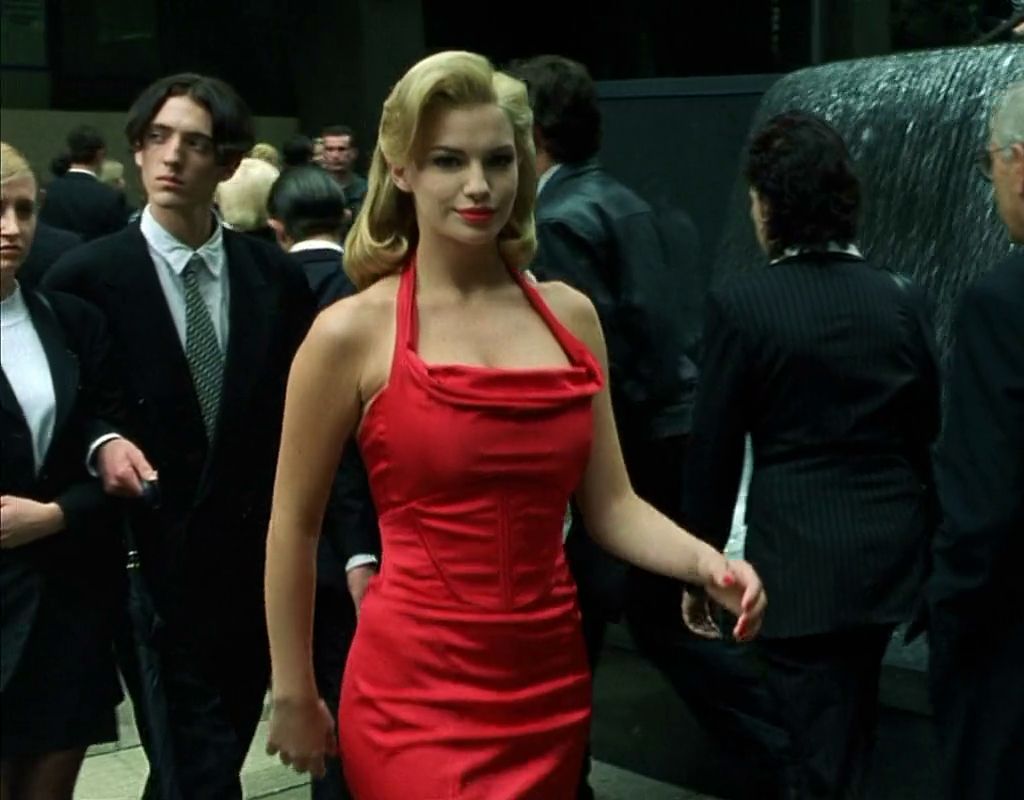
Editor’s note: There’s nothing wrong with biological impulse, nothing wrong with enjoying animal pleasures, and there's a lot of it in Summerland. But, if bio-stuff is all you have, then it won’t turn out so well -- not until sexual union pictures the grand archetype; until he finds that one, that only one, that particular “girl in a red dress,” upon whose heart and soul his name is indelibly inscribed; and hers, upon his -- inscribed with permanent red marker, of course.

|
|
Editor's last word:
It seems that the Buddha once said that desire is the root of all suffering. He wasn’t referring to authentic desire related to authentic needs. He was talking about a diseased form of desire that’s better translated “craving,” which speaks to a sense of emptiness and lack.
My pastor friend in the coffee shop, mentioned above, espoused the traditional Big Church view of God as necessarily without desire. This is quite wrong, as desire per se is not the problem, for all good people "made in the image" have desires; we all want things to be better for everyone. However, God assuredly will have no neurotic cravings, no desire "for more," to fill up a needy sense of self; and neither will those "made in the image."
|
|


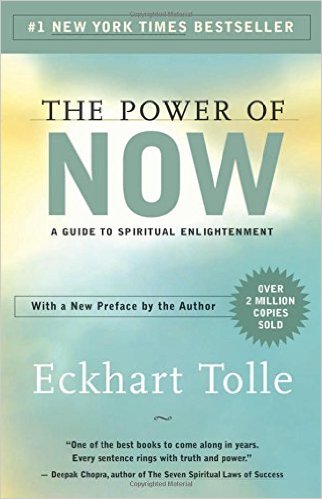
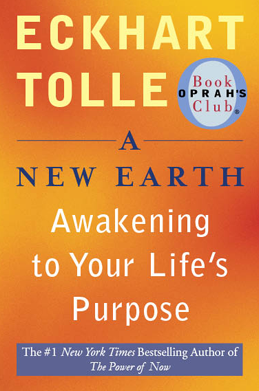





.jpg)

